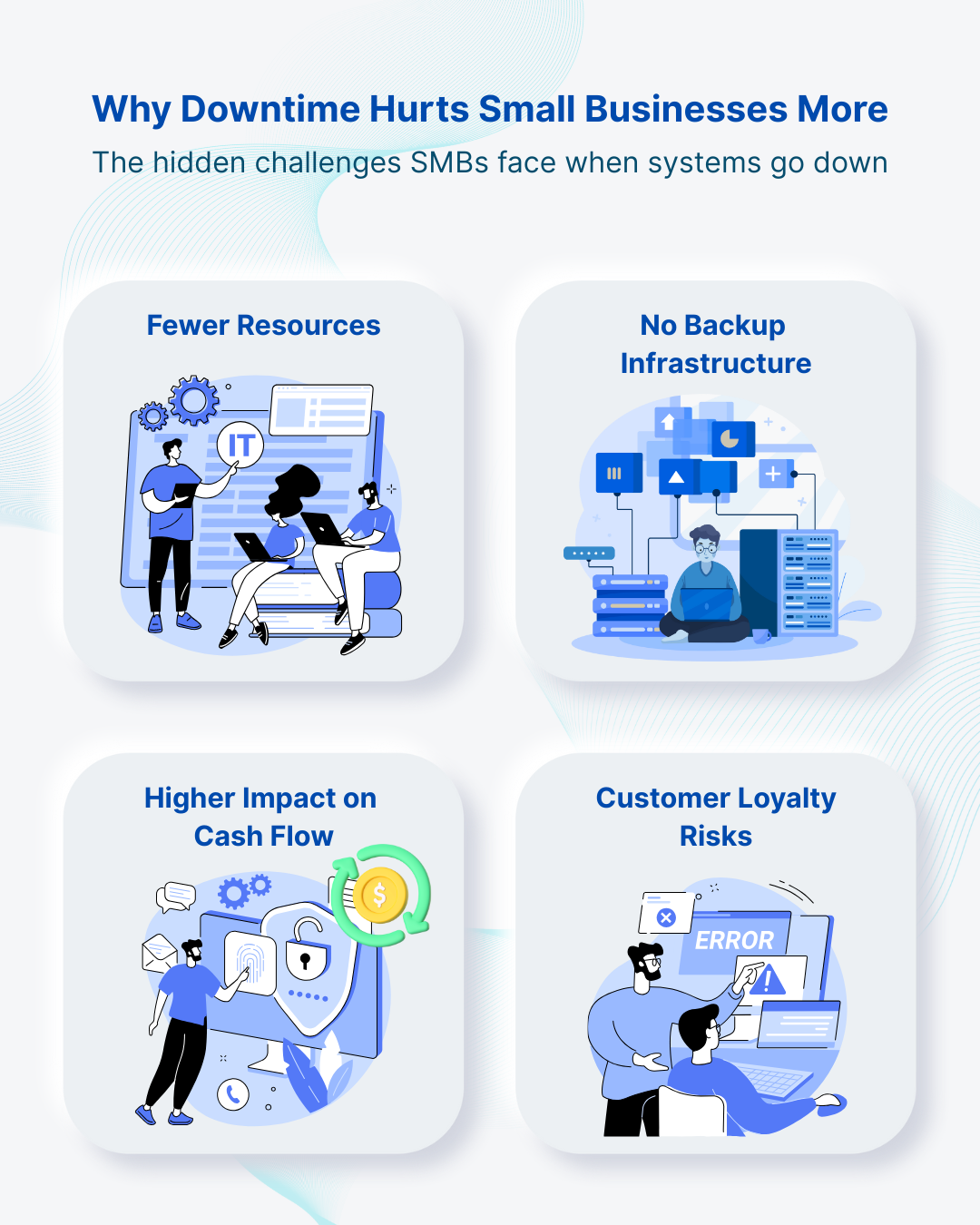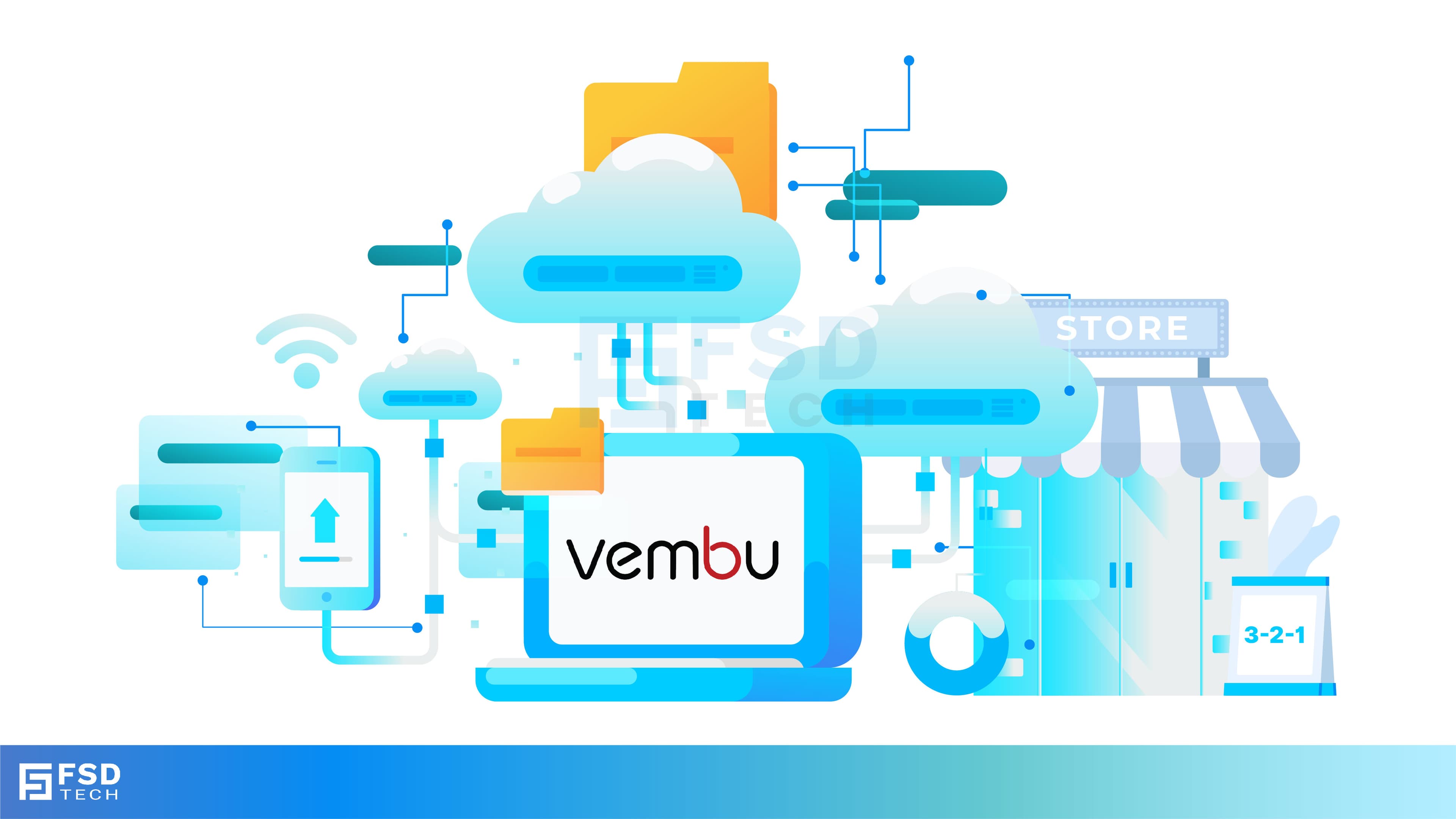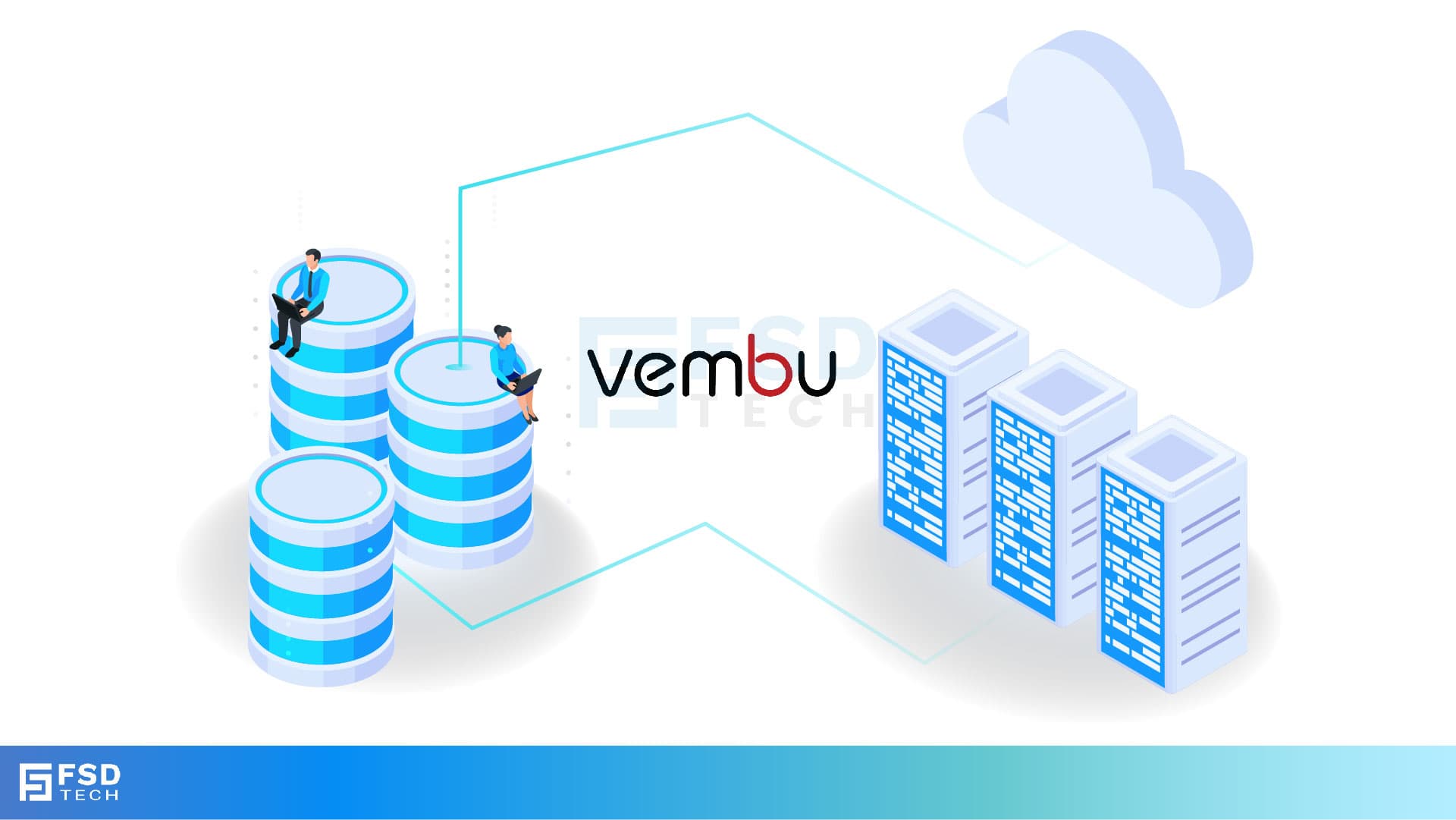.webp&w=3840&q=75)
How ClickUp Enables Outcome-Based Project Management (Not Just Task Tracking)
🕓 February 15, 2026

Let’s imagine two companies:
One Monday morning, both companies experience the same problem — their systems go down because of a server failure.
It takes them three days to get back online. During that time:
For Virtual-SMB-Store, those three days cause more financial and reputational damage than Virtual-Mega-Corp’s one-hour outage.
👉 Don’t let a 3-day outage cripple your business. Book a Free Backup Readiness Check and see how quickly you could recover.
1. Fewer Resources
Large enterprises can afford:
Small businesses often have:
2. No Backup Infrastructure
Enterprises usually have:
Small businesses often have:
3. Higher Impact on Cash Flow
For a large enterprise, an hour of downtime may cause big losses, but it’s a small fraction of their revenue.
For a small business, even a few hours without sales can:
4. Customer Loyalty Risks
Big companies have strong brand recognition, so customers are more likely to wait for them to recover.
Small businesses risk losing customers permanently if they go offline for too long — because customers can easily switch to competitors.
5. Recovery Takes Longer
Large enterprises:
The good news? Modern backup and disaster recovery tools like Vembu BDR Suite can give small businesses the same protection that large enterprises enjoy — without the huge cost.
Here’s how:
Pay only for the storage and features you need.
🚀 Automated, Affordable, Always-On Protection. Start Your Free Consultation Today and secure your small business.
Real-World Example
A small travel agency in Abu Dhabi lost access to all booking records after a server crash.
Because they used Vembu’s cloud backup service, they:
Without that system, recovery could have taken days — maybe weeks.
The Big Lesson
Downtime is bad for any business, but for small businesses, it’s often critical.
The difference between surviving a disaster and closing your doors can come down to how well you’ve protected your data.
With the right backup solution, small businesses can respond to disasters as quickly and effectively as large enterprises.
Key Takeaway
For small businesses, downtime can feel like a knockout punch. But with planning, backups, and the right tools, you can get back on your feet quickly — and sometimes even prevent the problem in the first place.
Tomorrow’s Topic – Day 5:
We’ll cover “The Top 5 Data Protection Trends in GCC & Africa for 2025.”
Don’t let downtime decide your company’s future. Let’s create a Vembu Backup & Recovery Plan so your small business can stay strong no matter what happens. Book your free consultation today

Downtime is when your business systems — like your website, payment machines, or critical software — stop working. It can happen because of internet outages, server crashes, cyberattacks, or even a power cut. During downtime, your business can’t serve customers, process sales, or continue normal operations.
Small businesses usually have fewer backup systems, smaller IT teams, and tighter budgets. When something breaks, they can’t quickly switch to another system like big companies can. Every lost hour often means direct loss of sales, customers, and reputation.
Not always in total numbers — a big company might lose millions in one hour. But for small businesses, the loss is a bigger percentage of their total income. For example, a large business might absorb a $10,000 loss more easily than a small shop losing $1,000 in one day.
Big companies often have:
Yes. If customers see your business as unreliable — for example, your online store is often “unavailable” or payment systems fail — they might choose competitors. In today’s world, customers expect fast and reliable service.
Yes — many downtime incidents are caused by cyberattacks. Ransomware, for example, locks your data until you pay a ransom, stopping operations completely. Protecting your systems can reduce the risk of downtime.
Absolutely. Preventing downtime is often much cheaper than losing income during an outage. Even basic steps like cloud backups, strong passwords, and regular maintenance can save thousands in the long run.
Some business interruption insurance policies do cover downtime-related losses. However, coverage depends on the cause (e.g., fire, flood, or cyber incident) and the policy terms. Always read the fine print.

Nasmal is a Solution Architect & Business Analyst focused on AI, Data, Automation, BCP, and Process Optimization. He helps businesses evolve from reactive to proactive, data-driven, and resilient operations. With hands-on expertise, he simplifies complex tech into clear, easy-to-understand blogs.
Share it with friends!

🕓 November 24, 2025

🕓 September 16, 2025

🕓 September 5, 2025
share your thoughts